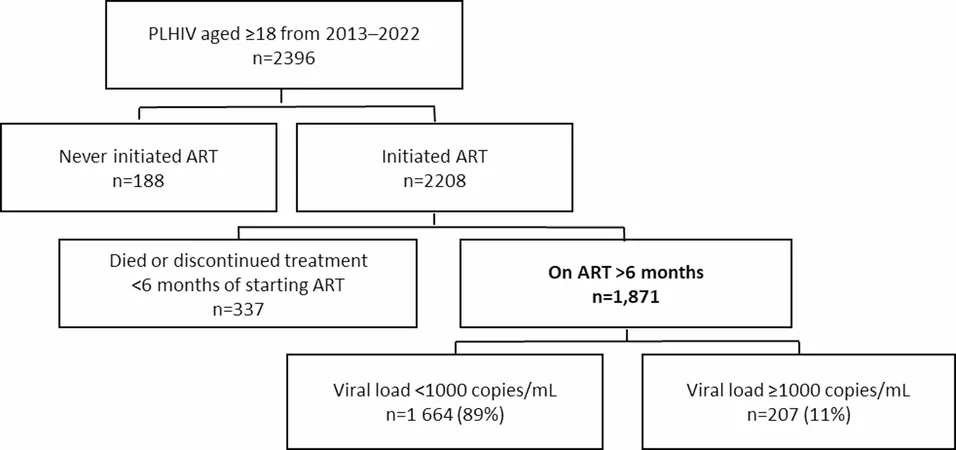
Unlocking the Secrets to Postpartum Wellness: Just Over an Hour of Exercise a Week Could Be Your Lifesaver!
2024-11-07
Author: Sophie
Introduction
Are you a new mother grappling with the daunting "baby blues"? A groundbreaking study reveals that engaging in just over an hour of moderate-intensity exercise each week could substantially ease postpartum depression symptoms and almost cut the risk of developing major clinical depression in half!
Study Overview
Conducted on a large scale, this research draws evidence from 35 separate studies covering over 4,000 women across 14 countries. It highlights moderate physical activities such as brisk walking, water aerobics, stationary cycling, and resistance training as simple yet effective tools for new mothers. However, researchers caution that with the whirlwind of new responsibilities, finding time for physical activity can be a challenge. It’s essential that recovery from childbirth remains a priority.
Impact of Maternal Anxiety and Depression
The overwhelming cycle of maternal anxiety and depression can negatively impact both a mother's self-care and her ability to bond with and care for her newborn, potentially hindering the child’s emotional and social development later on. While conventional methods to tackle postpartum mental health issues often revolve around medication and therapy—approaches that may involve side effects, accessibility issues, and financial constraints—this study offers an encouraging alternative.
Exercise and Mental Health
Traditionally, the link between physical activity and reduced anxiety or depression has been recognized, yet its specific effects on new mothers dealing with baby blues had remained uncertain—until now. This new analysis indicates a staggering 45% reduction in the risk of major postpartum depression for mothers who engage in regular exercise compared to sedentary women.
Recommendations for New Mothers
For optimal results, the researchers recommend that women aim for at least 80 minutes of moderate-intensity exercise weekly, ideally spread across at least four days. Notably, starting an exercise routine within the first 12 weeks post-birth yields greater mental health benefits compared to beginning later.
Expert Advice
Prof. Margie Davenport, the lead author and an expert from the University of Alberta, suggests that gentle walks post-childbirth are a fantastic starting point: "Walking is not only easy to incorporate into daily life, but it also provides an opportunity to bond with your baby," she states. As mothers regain strength, she emphasizes the importance of gradually intensifying their physical activity while being mindful of their body's feedback.
Consider Individual Challenges
Moreover, it’s vital to recognize that everyone’s recovery journey is unique. Some mothers might face challenges such as urinary incontinence during exercise, in which case consulting a pelvic floor physiotherapist is advisable.
Conclusion
In conclusion, new mothers are encouraged to embrace this exercise regimen not only as a way to strengthen their bodies but also to nurture their mental well-being. So why wait? Dig out those walking shoes and take the first step toward a healthier, happier postpartum journey!









 Brasil (PT)
Brasil (PT)
 Canada (EN)
Canada (EN)
 Chile (ES)
Chile (ES)
 Česko (CS)
Česko (CS)
 대한민국 (KO)
대한민국 (KO)
 España (ES)
España (ES)
 France (FR)
France (FR)
 Hong Kong (EN)
Hong Kong (EN)
 Italia (IT)
Italia (IT)
 日本 (JA)
日本 (JA)
 Magyarország (HU)
Magyarország (HU)
 Norge (NO)
Norge (NO)
 Polska (PL)
Polska (PL)
 Schweiz (DE)
Schweiz (DE)
 Singapore (EN)
Singapore (EN)
 Sverige (SV)
Sverige (SV)
 Suomi (FI)
Suomi (FI)
 Türkiye (TR)
Türkiye (TR)
 الإمارات العربية المتحدة (AR)
الإمارات العربية المتحدة (AR)